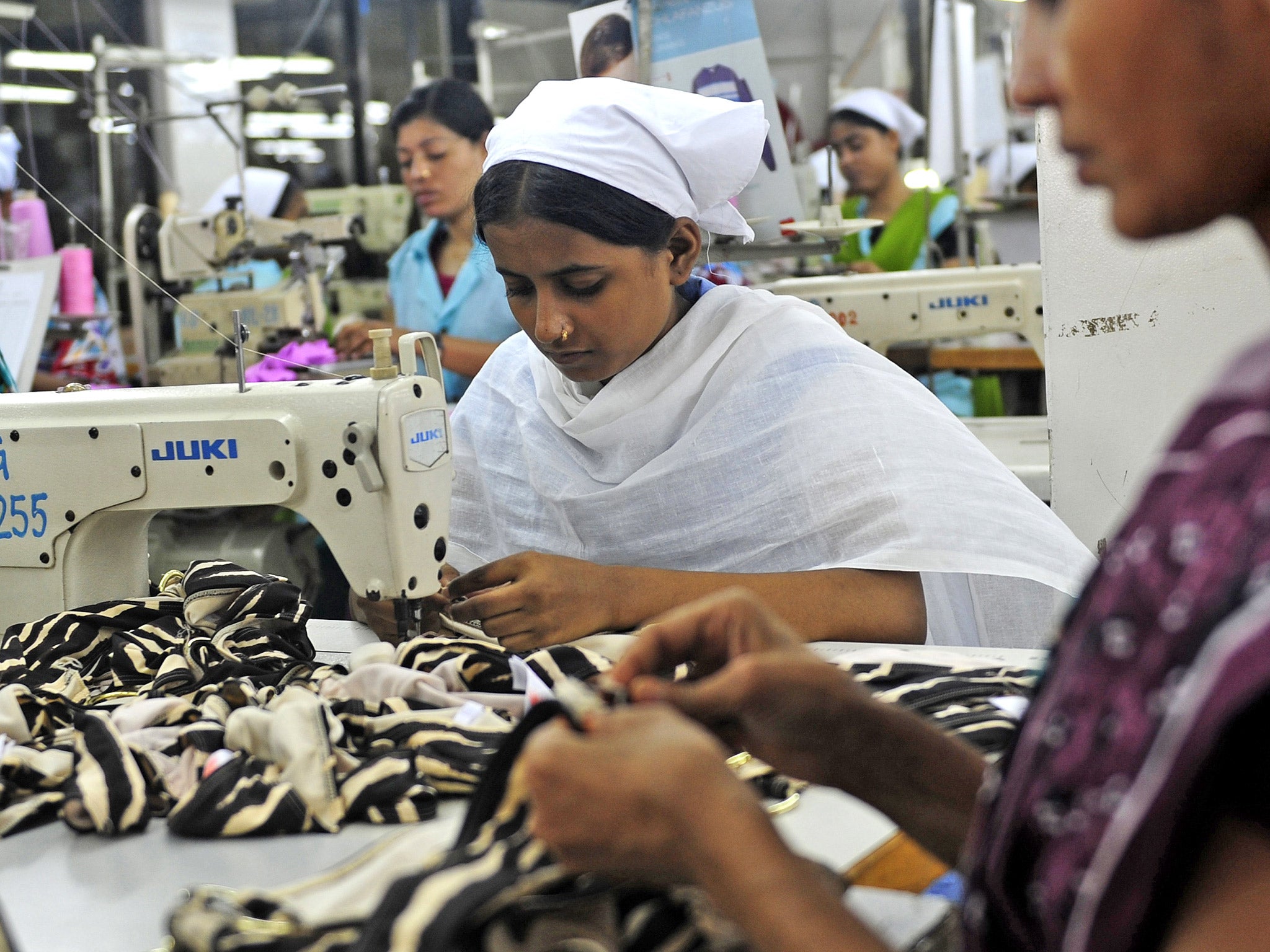UN official urges 'immediately and urgent' appointment of inspectors to regulate Bangladeshi garment industry
Guy Ryder, director-general of the International Labour Organisation, feels that if reforms are not initiated, many foreign companies will seek new production bases

Your support helps us to tell the story
From reproductive rights to climate change to Big Tech, The Independent is on the ground when the story is developing. Whether it's investigating the financials of Elon Musk's pro-Trump PAC or producing our latest documentary, 'The A Word', which shines a light on the American women fighting for reproductive rights, we know how important it is to parse out the facts from the messaging.
At such a critical moment in US history, we need reporters on the ground. Your donation allows us to keep sending journalists to speak to both sides of the story.
The Independent is trusted by Americans across the entire political spectrum. And unlike many other quality news outlets, we choose not to lock Americans out of our reporting and analysis with paywalls. We believe quality journalism should be available to everyone, paid for by those who can afford it.
Your support makes all the difference.The United Nations' top official in charge of labour has urged the Bangladesh government to “immediately and urgently” appoint hundreds of inspectors to control the disaster-prone low-cost garment industry, half of whose exports are to European Union countries. Guy Ryder, director-general of the International Labour Organisation, said there are currently only a “negligible” number of inspectors - 55 - for a total national workforce of fifty million.
He told The Independent in an exclusive interview that this was one of two urgent steps need now to help prevent a recurrence of the disasters that have left over 400 factory workers dead last week in a building collapse and 112 dead in a factory fire last November
He said a national fire and safety programme had been agreed, but despite his own trip to Bangladesh last year, the government had repeatedly failed to get to grips with the problems in the industry that had led to the recent tragedies.
Mr Ryder has sent a top-level delegation to Dhaka, arriving on May Day, but it was not yet clear if the government, irritated by this intervention, would allow delegates to visit the scene of last week's disaster, sources in Bangladesh told The Independent.
The country's UK ambassador, in a television interview for ITN, laid the blame for the disaster on cut-throat bargaining for “every penny” by British and Western buyers. Primark is one of several UK firms that have offered to pay compensation to dead workers' families - the vast majority of whom are young women aged 19 to 26. Hundreds more are in hospital, many with amputated limbs crushed in the rubble.
Hundreds of “missing” notices and photographs have been plastered on walls near the scene of the collapse.
Sharon Sadeh, founder of a British company GreenGrade Solutions, that trains factories in Bangladesh and Cambodia to comply with international standards in garment industry, says the vast majority do not.
On his return to London from a gruelling week in discussions in Bangladesh, Mr Sadeh called on UK industry to effectively create a blacklist of offending factories or directors evading national and international standards on health and safety.
Mr Sadeh also called for the European Union to issue “immediate and credible threats” to remove what the preferential duty-free status unless the Bangladeshi government would “seriously tackle the collusion between factory owners and corrupt officials that help them”.
But Mr Ryder said, while Western companies needed to do more, the primary responsibility was the Bangladeshi government's. “The government has not acted on our urgings and exhortations to this point,” he stated.
He said he country earned 19 billion dollars annually from the garment exporting trade - around 80 per cent of its total foreign earnings - and “even as a developing country” needed to set aside sufficient resources to safeguard the workers and the industry as a whole.
The International Labour Organisation is offering to set up training programmes for proper inspections, but only when proper labour legislation is finally brought into law in Bangladesh, said Mr Ryder. Bangladesh is the world's second-largest exporter of garments behind China and has overtaken India.
Mr Ryder feels that if Bangladesh does not institute very urgent and widespread reforms many foreign companies manufacturing or sourcing their garments will seek new production bases - with Myanmar a new contender.
“We have been calling for new Bangladeshi legislation for a number of years. There is a new act approved by cabinet, but we have become used to long delays.”
He said the new law should enshrine the rights of workers to organise and defend their interests, an issue “brought to the surface by last week's events.
“Reforms must come - but tragically, it is too late for many people.”
Mr Sadeh predicted more disasters, probably caused by electrical faults or from fuel and boilers. He says between 85 to 90 per cent of the factories, which employ almost 4 million people, do not have proper safety standards.
But he conceded that Western governments and the EU may be loathe to act too firmly for fear of destabilising the politically sensitive country, and also because it could deprive the mainly female work-force from gainful employment in the clothing industry.
Paul Martin in editor-in-chief of ConflictZones.tv
Join our commenting forum
Join thought-provoking conversations, follow other Independent readers and see their replies
Comments